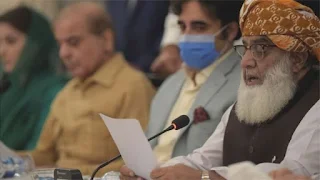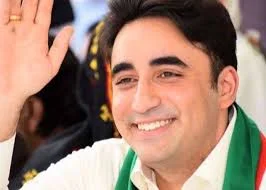No-confidence motion or long march: Which strategy of Pakistan Democratic Movement can create more difficulties for PTI?
The Pakistan Democratic Movement, an alliance of 11 Pakistani political parties, aims to send the PTI government home, but it does not appear to be pursuing a single strategy to achieve that goal.
Conflicting statements made in recent days by leaders of the two major PDM parties, the Pakistan Muslim League-Nawaz and the People's Party, have further exposed the disunity in the opposition alliance.
At a time when PML-N and PDM president Maulana Fazlur Rehman are seen talking about dates for a long march to Islamabad to increase pressure on the government, by PPP chairman Bilawal Bhutto Zardari. The statement said that his party would propose a no-confidence motion against Prime Minister Imran Khan to the PDM using constitutional, legal and democratic means to remove the government.
However, PML-N general secretary Ahsan Iqbal rejected the suggestion and said that if Bilawal Bhutto has enough numbers, then bring it forward.
He said that despite the completion of the number game in the Senate, the no-confidence motion against Chairman Senate Sadiq Sanjrani had failed. Therefore, his party is not in favor of the no-confidence motion.
Many political observers believe that statements by the PPP and PML-N regarding various strategies are pointing to internal turmoil in the PDM. However, PML-N leader and former Sindh Governor Muhammad Zubair said "It's just a difference of opinion that can be resolved through dialogue."
Reacting to the PPP's no-confidence motion, Zubair said that the forces we are competing with are not only Pakistan Tehreek-e-Insaf (PTI) and if the opposition brings a no-confidence motion and it fails like the no-confidence motion which If it was brought against Sadiq Sanjarani, it would be a big blow to the PDM and keeping the movement alive after this failure would be a big challenge.
On the other hand, former Prime Minister and PPP leader Raja Pervez Ashraf believes that all the options under consideration to remove the government are constitutional, whether it is a long march or a peaceful protest or a no-confidence motion. Options are open.
Journalist and analyst Sohail Warraich says that although the PDM's repeated statements and changes in strategy are detrimental to its rhetoric, it does not point to any sharp differences in the PDM because if Had the differences escalated, the alliance would not have survived.
No-confidence motion or Long March: What could be a problem for the government?
On the other hand, the government does not seem to be bothered by the PDM's ever-changing strategy.
Pakistan Tehreek-e-Insaf (PTI) senator Faisal Javed has said that neither the demands for resignations from the assembly, nor the meetings and now the no-confidence motion are a source of pressure for the government. On the other hand, Shehzad Akbar, Advisor to the Prime Minister on Accountability, said that if the PDM wanted to create problems for the government, it should first formulate a strategy on which it could stand on its own for four days.
He said that the ever-changing strategy was not a threat to the government but Sohail Warraich believed that if the opposition came up with a no-confidence motion, it could put more pressure on the government than the long march.
"If the PDM uses the long march option, it will have to stay on the streets for several days to keep up the pressure on the government, which will require more resources and public support," he said. If she marches during the day and returns home in the evening, it will not affect the government in any way.
Therefore, in comparison to all these, if the PDM brings a no-confidence motion with readiness, it will fail



Comments
Post a Comment